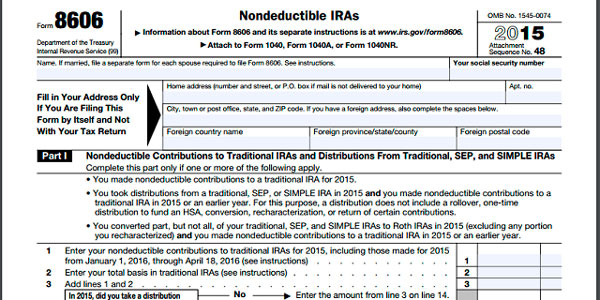If you're looking for ways to save money and grow your wealth, understanding the difference between a Money Market Account (MMA) and a Savings Account can help you determine which financial tool is better suited for your needs.
Both accounts offer advantages and drawbacks, so it's important to understand their features before deciding which one will best protect your earnings while maximizing interest rates.
In this blog post, we look at the differences between Money Market Accounts and Savings Accounts to help you choose the best option for your savings goals.
Understanding the Fundamentals of Savings and Money Market Accounts
When compared to standard savings accounts, money market accounts often provide greater interest rates. You receive larger returns on your savings since the money you deposit is invested in various investments. Although check-writing and debit card privileges are typically included with MMAs, these services frequently have more limitations than savings accounts.
Savings Accounts are the traditional type of savings account, where you deposit your money and earn interest on it. Savings accounts typically offer different high returns than MMAs, and they come with fewer features such as check writing or ATM access. However, they generally have lower balance requirements and fewer restrictions on withdrawals.
What Types of People Benefit from Each Account

The type of account that's best for you depends on your financial needs and goals. MMAs are ideal for those who can maintain a higher balance and want to earn a higher return on their deposits. They also offer more features than regular savings accounts, making them great for people who need access to their funds in an emergency.
On the other hand, Savings Accounts are ideal for those who want to save money but don't need or can't maintain a high balance requirement. They also tend to have fewer withdrawal restrictions than MMAs, making them great for people needing access to their funds with little notice.
Pros and Cons of a Money Market Account vs. a Savings Account

Before you decide which type of account is best for you, it's important to understand the pros and cons of both MMAs and Savings Accounts.
The main advantage of a Money Market Account is that they offer higher returns on your deposits than regular savings accounts. The downside is that MMAs typically require higher minimum balance requirements and have more withdrawal restrictions.
On the other hand, Savings Accounts generally have lower minimum balance requirements than MMAs and fewer withdrawal restrictions. The downside is that they typically offer lower returns on your deposits than an MMA.
Which Account Should You Choose?
When deciding between a Money Market Account or Savings Account, the type of account that's best for you depends on your needs and goals. An MMA may be right if you can maintain a higher balance and want access to additional features such as check writing. On the other hand, if you don't need those features or can't maintain a higher balance requirement, a Savings Account may be the best option.
CIt'shoosing an account that fits your financial needs and goals is important. Understanding the differences between Money Market Accounts and Savings Accounts can help you make an informed decision and set yourself up for financial success.
You now have a better understanding of the distinctions between money market accounts and savings accounts, which can help you decide which is best for your financial objectives. Contact your neighbourhood bank for additional details on MMAs and savings accounts or to begin saving right away.
Key Takeaways to Keep in Mind When Choosing a Money Market or Savings Account

In summary, each type of account offers its advantages and drawbacks. Money Market Accounts are ideal for those who can maintain a higher balance requirement and want to ensure their money earns maximum interest rates. Savings Accounts are great for those who don't need or can't maintain a high minimum balance but still want to save their money in an insured account.
No matter which type of account you choose, shopping around and comparing different accounts is important to ensure you get the best interest rate possible. Understanding the terms and conditions of each account will also help you choose the right one for your needs. With the right choice, you can ensure that your money works hard for you and earns a maximum return.
By taking the time to understand the differences between Money Market Accounts and Savings Accounts, you can make sure that your money is growing as much as possible. With the right account, you can maximize your earnings while minimizing the risk of potential losses. Understanding these accounts will help you determine which is best for you and put more money in your pocket.
FAQs
How long should I keep business tax records?
The time you should keep business tax records depends on several factors, such as the type of record, when it was created, and whether it contains personal information. You should keep business records for at least 7 years since this is the length of time the IRS can audit your taxes.
What are the differences between a Money Market Account and a Savings Account?
A Money Market Account is an interest-bearing account that typically involves minimum deposits, higher interest rates than savings accounts, and limited access to funds. In comparison, Savings Accounts offer lower interest rates than MMAs but provide consumers with more flexible access to their
What are the consequences of not keeping good records?
When choosing between a Money Market Account and a Savings Account, it's important to consider the features of both accounts and what best fits your financial needs. While both can be beneficial when used correctly, understanding their differences is key to selecting the right one.
Conclusion
To sum up, keeping good records of your business transactions is essential. Business tax records should generally be kept for at least 6 years, and business receipts for at least 1 year. Follow these criteria to avoid the IRS flagging any discrepancies they find, which will cause you to incur fees and penalties. As a business owner, staying on top of your record-keeping is important to ensure you comply with all regulations.




